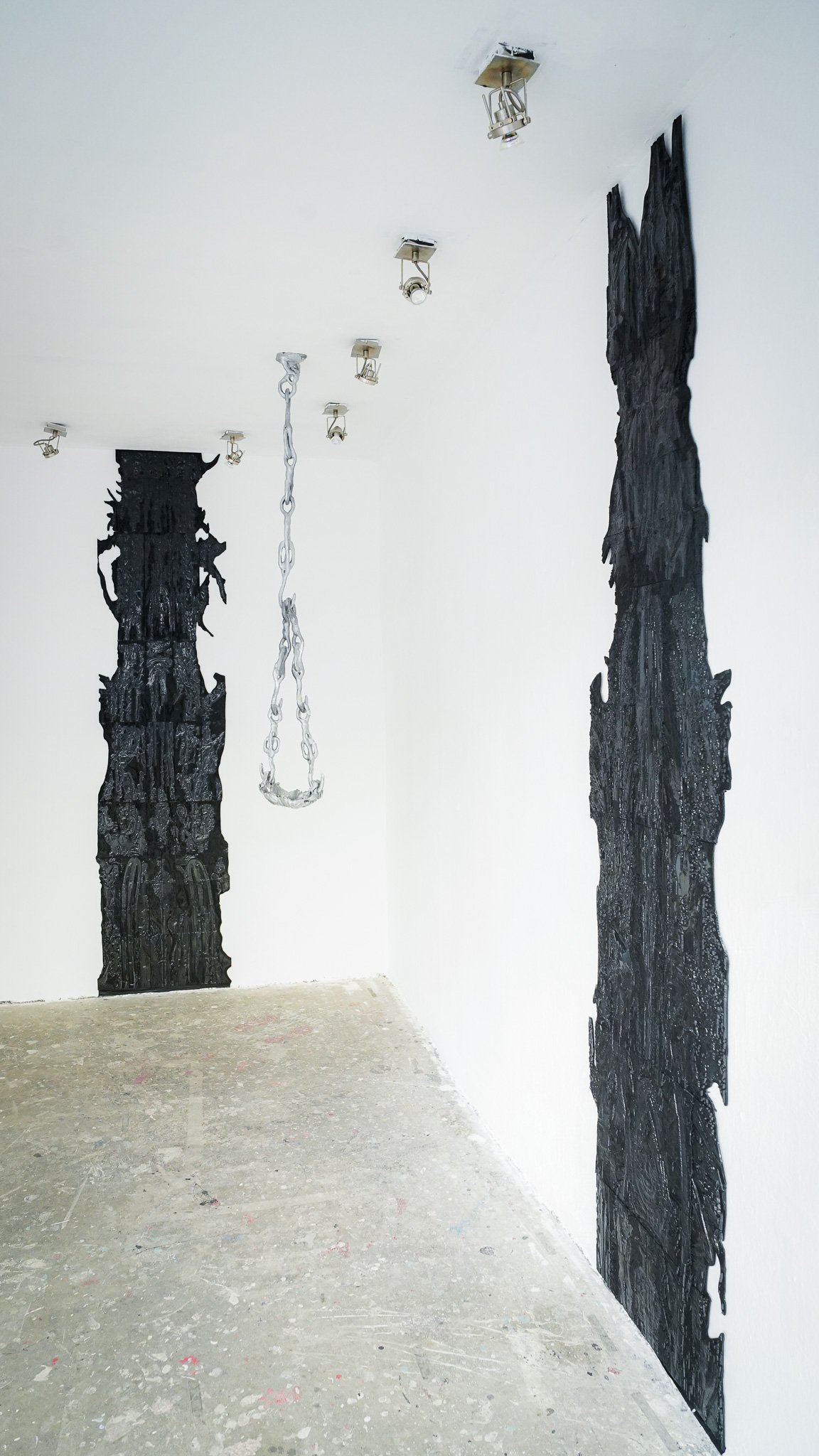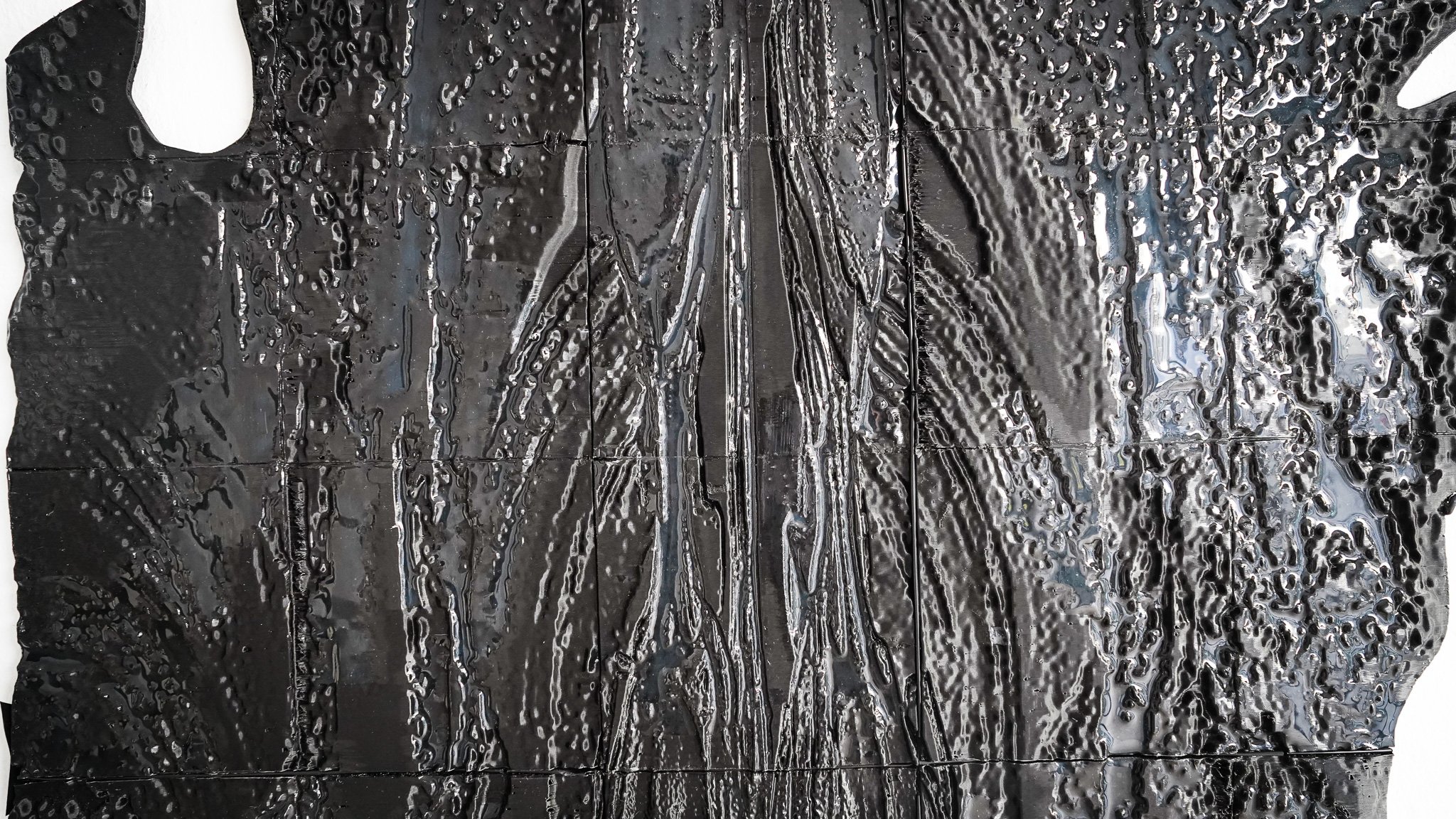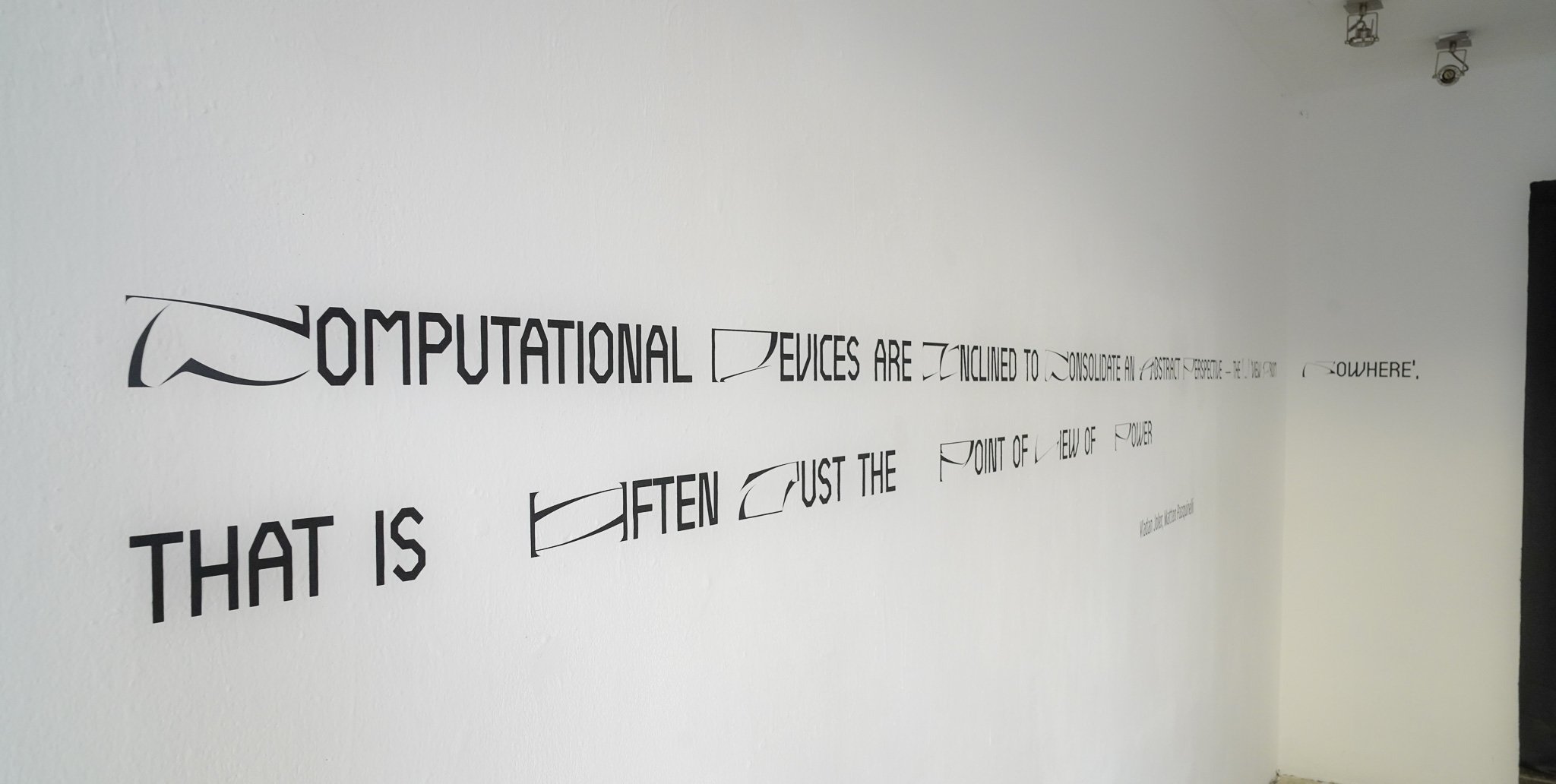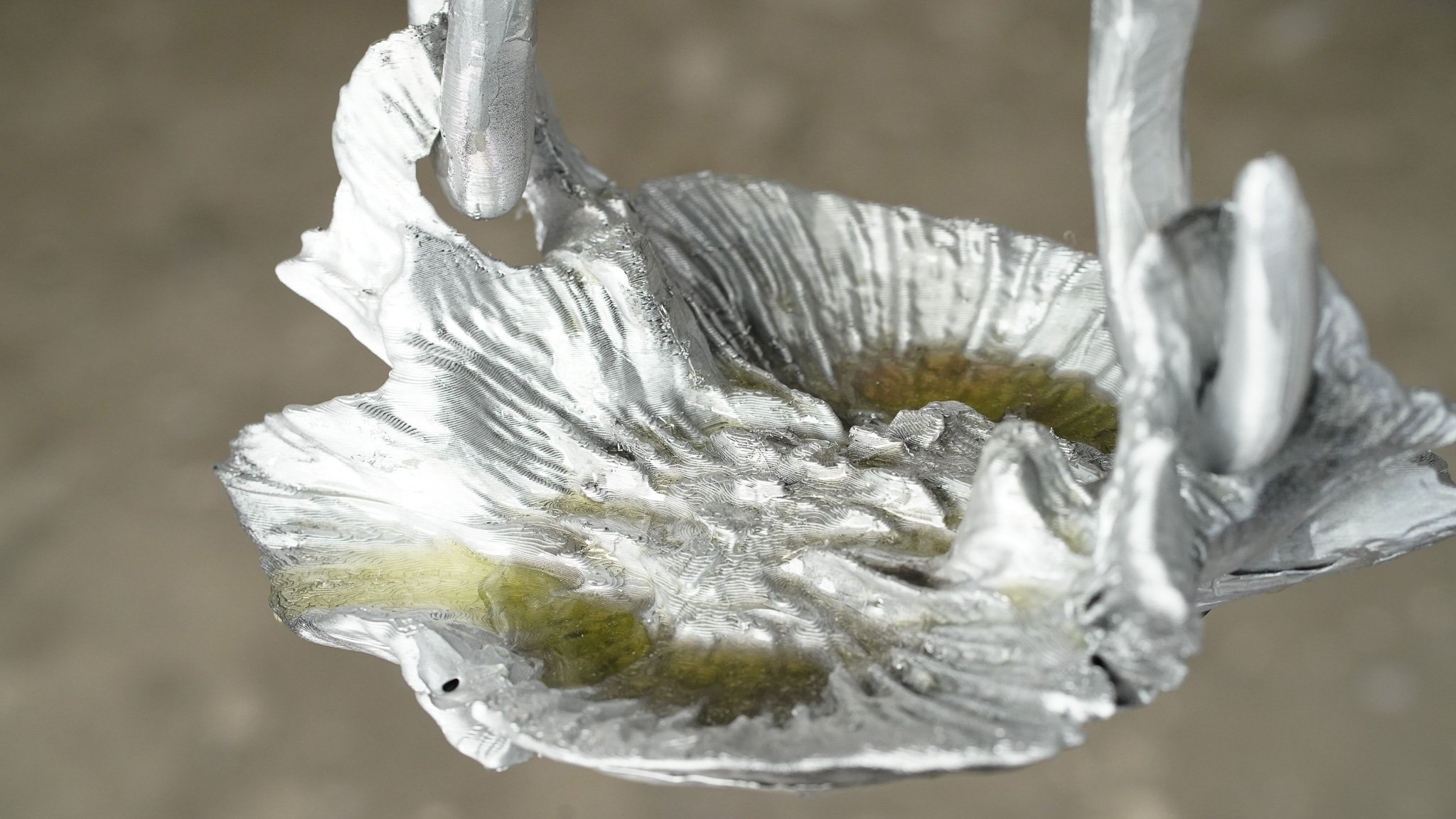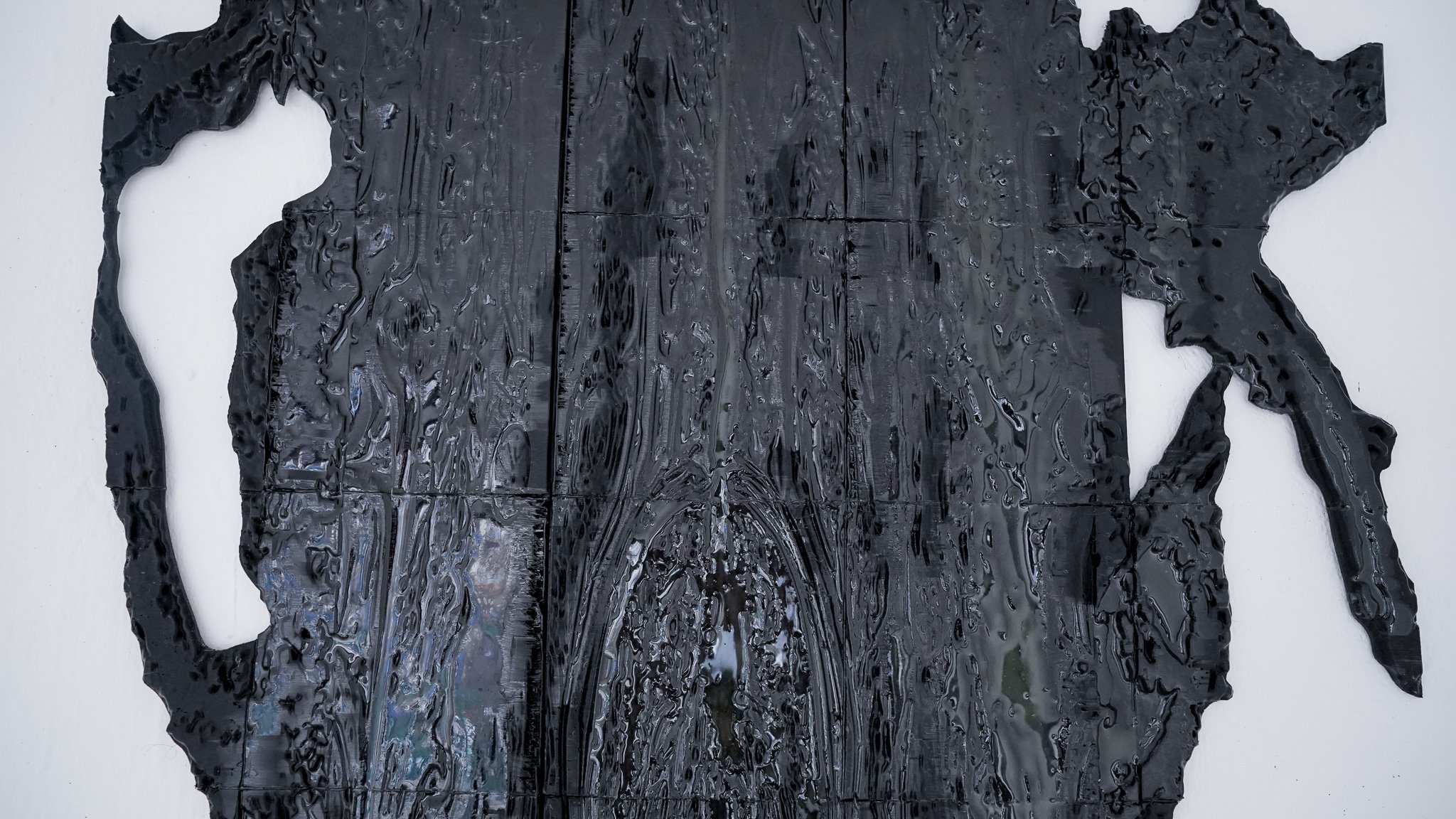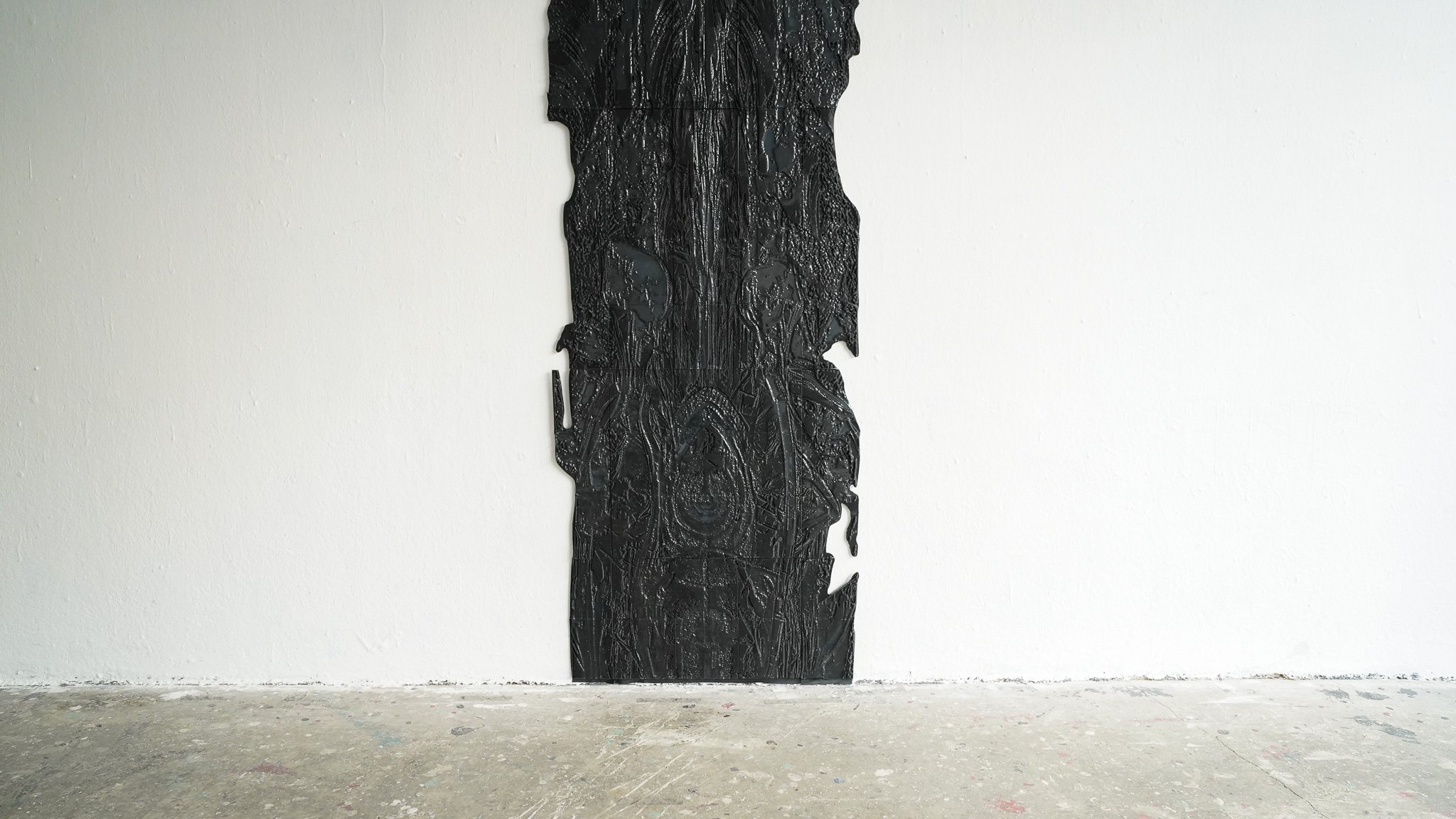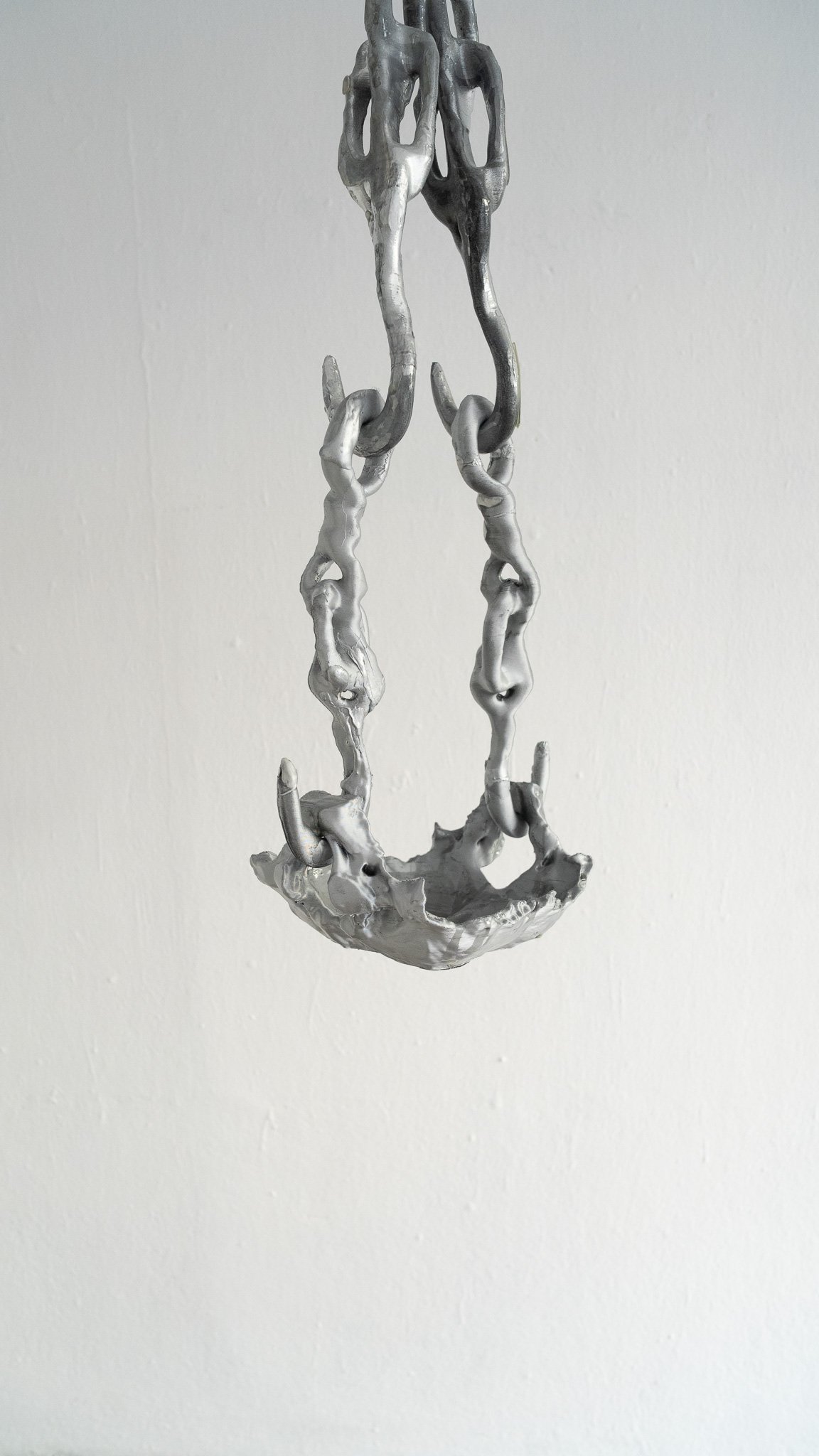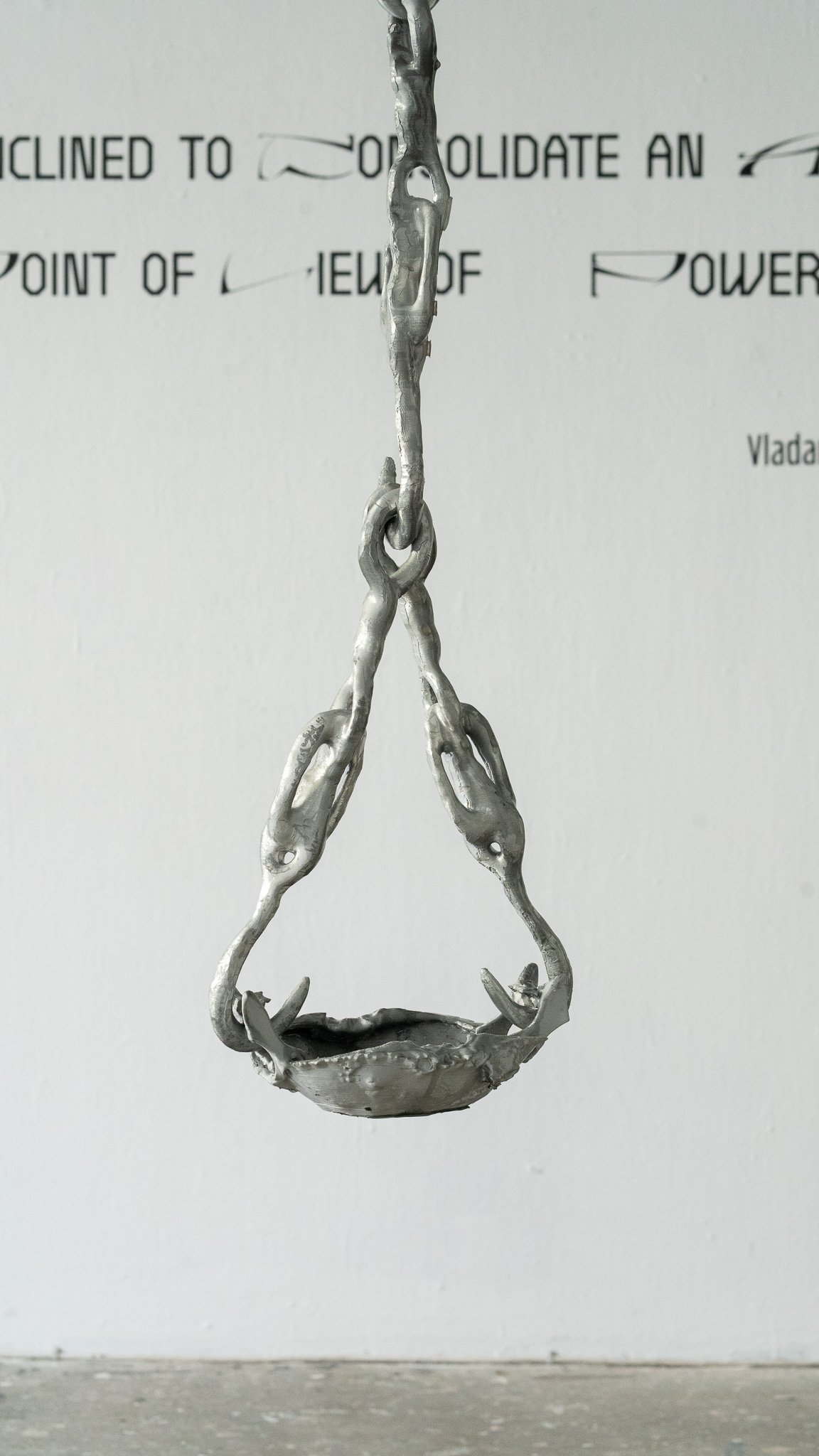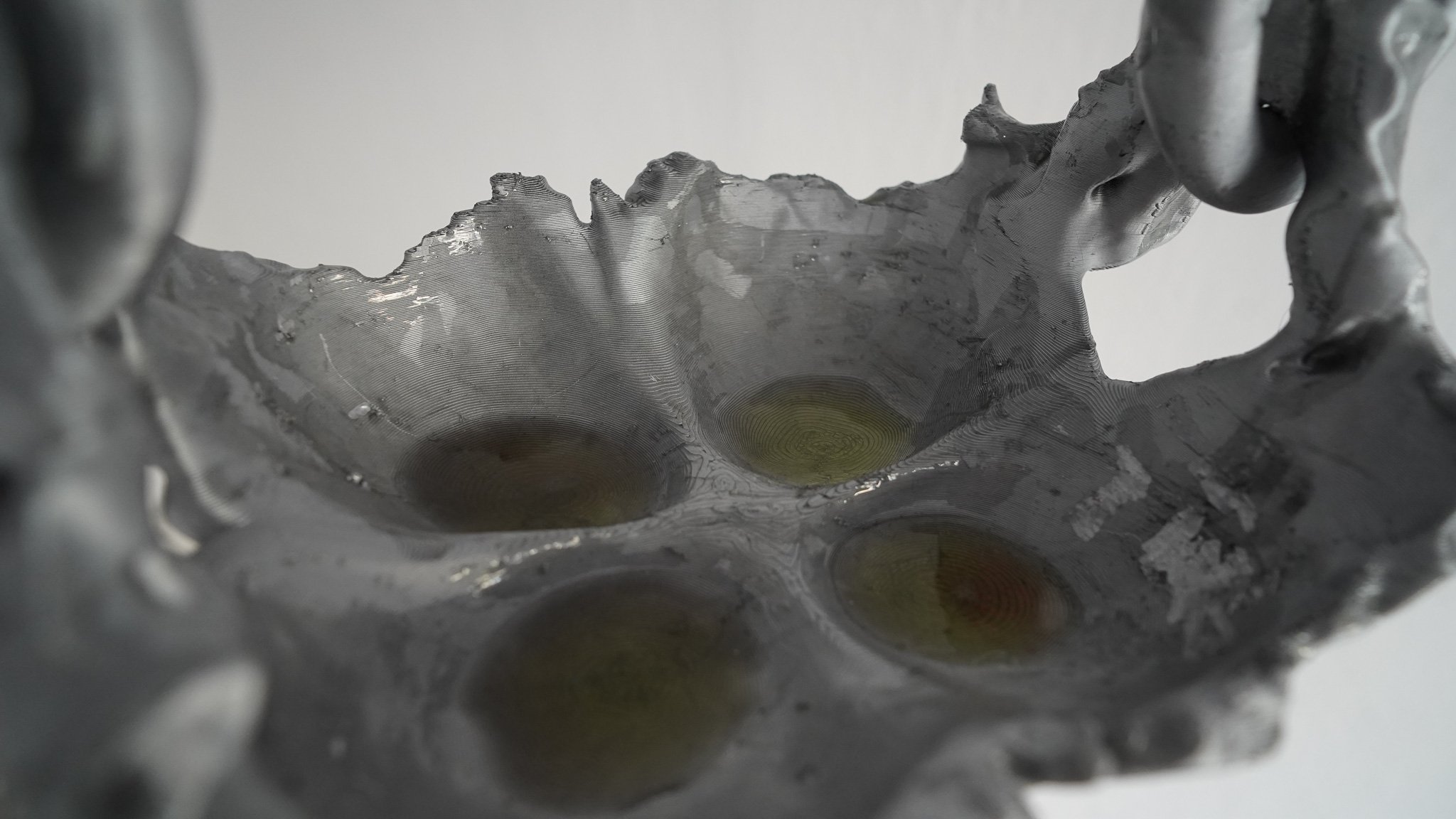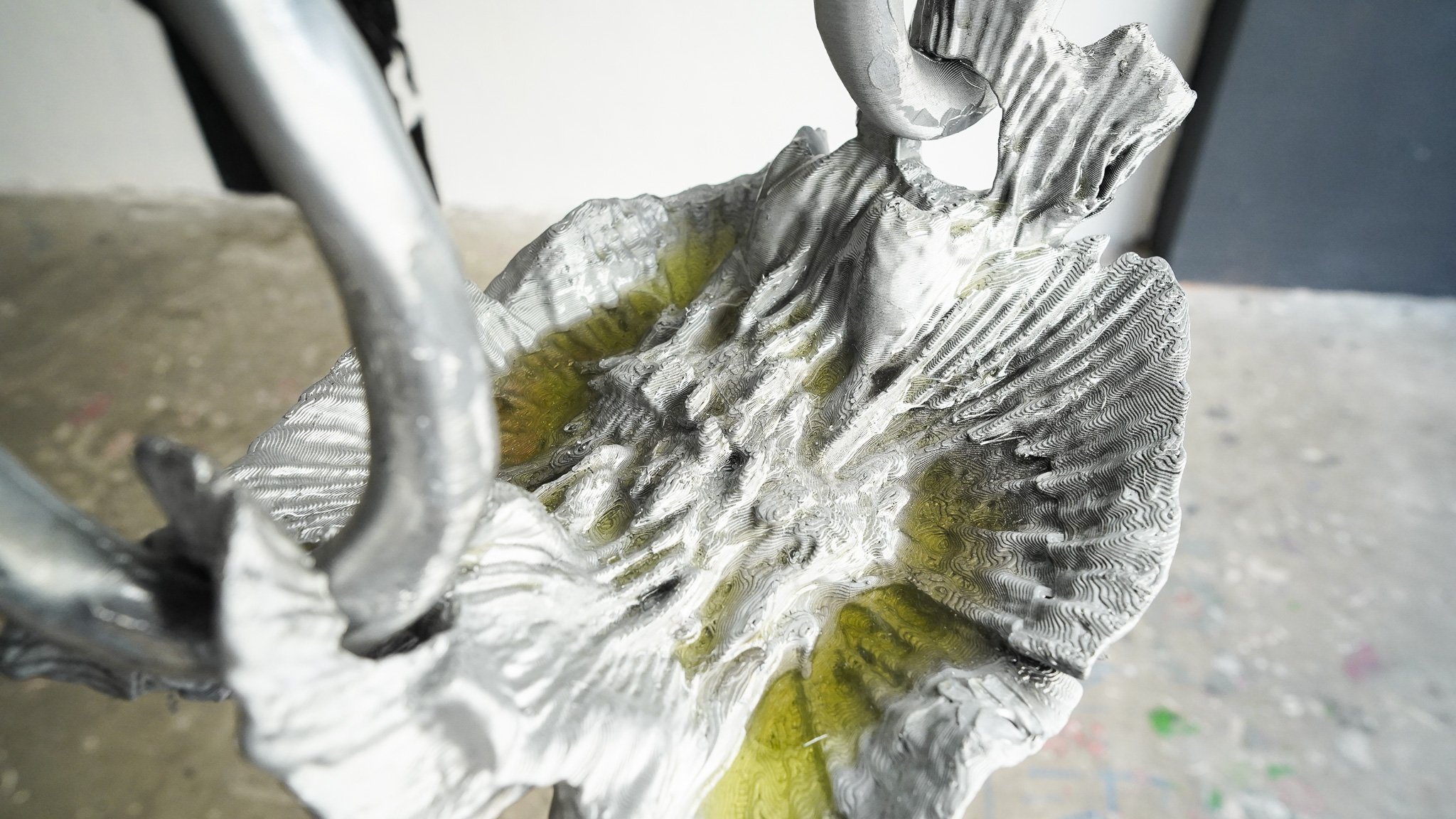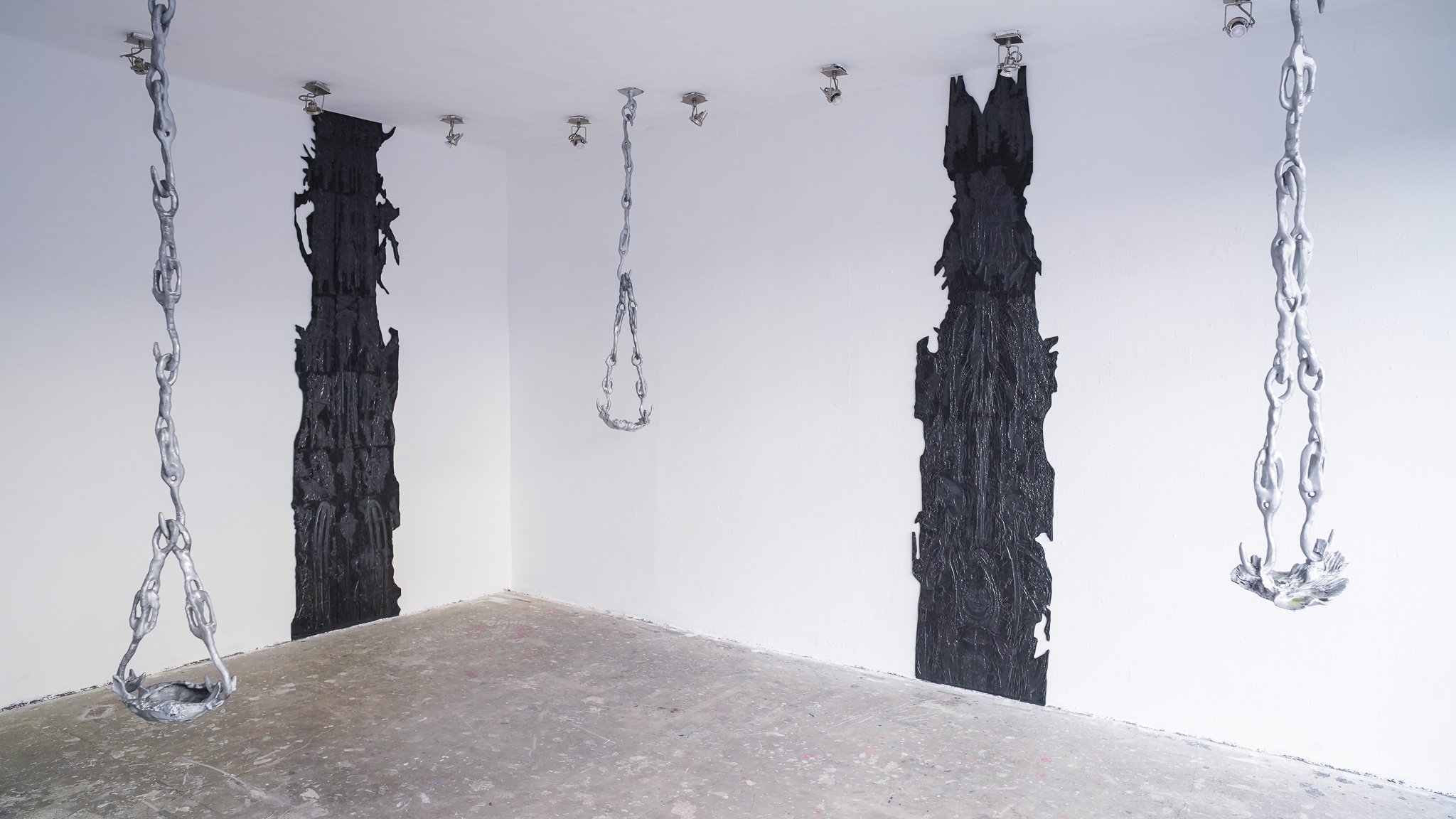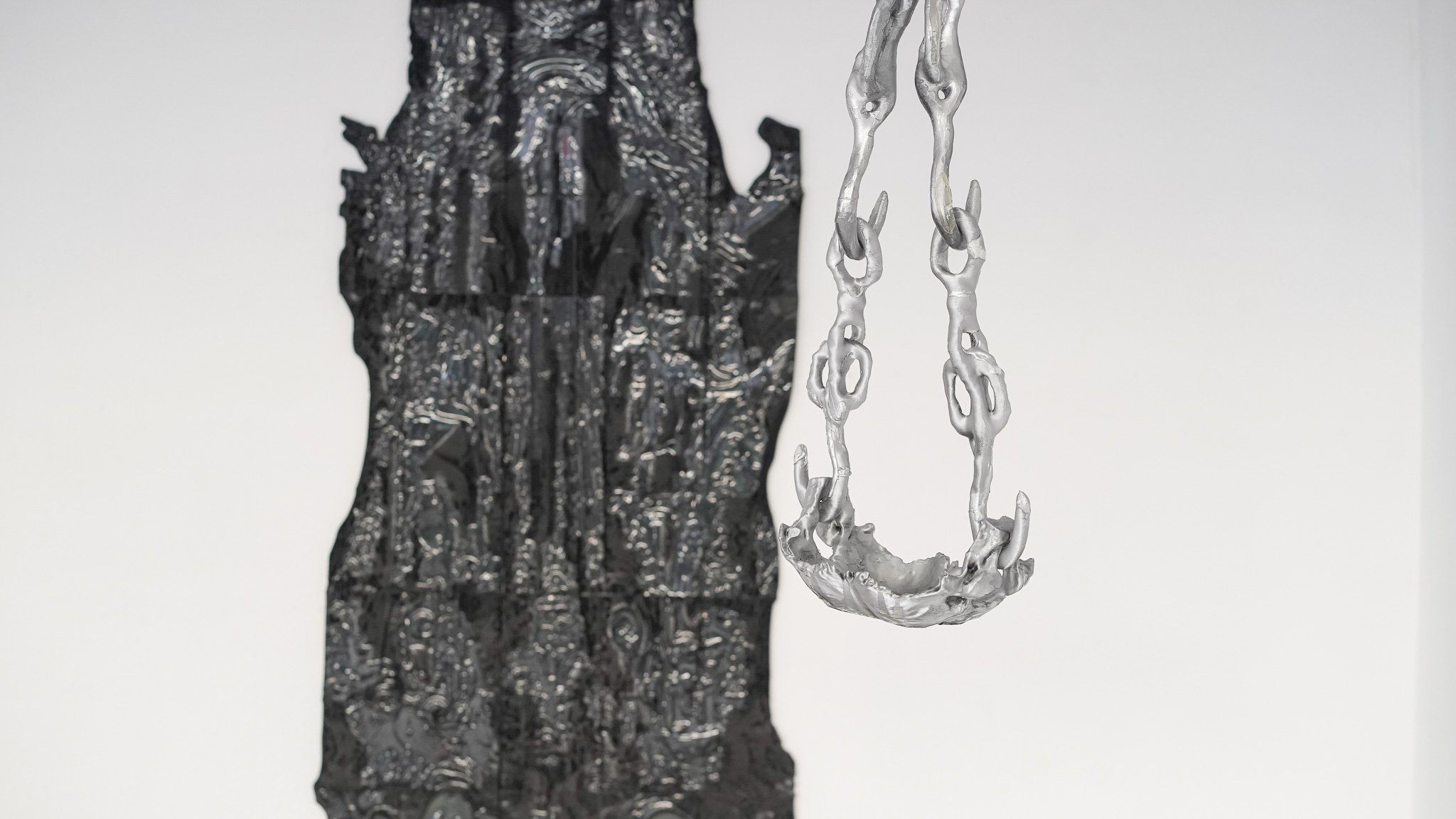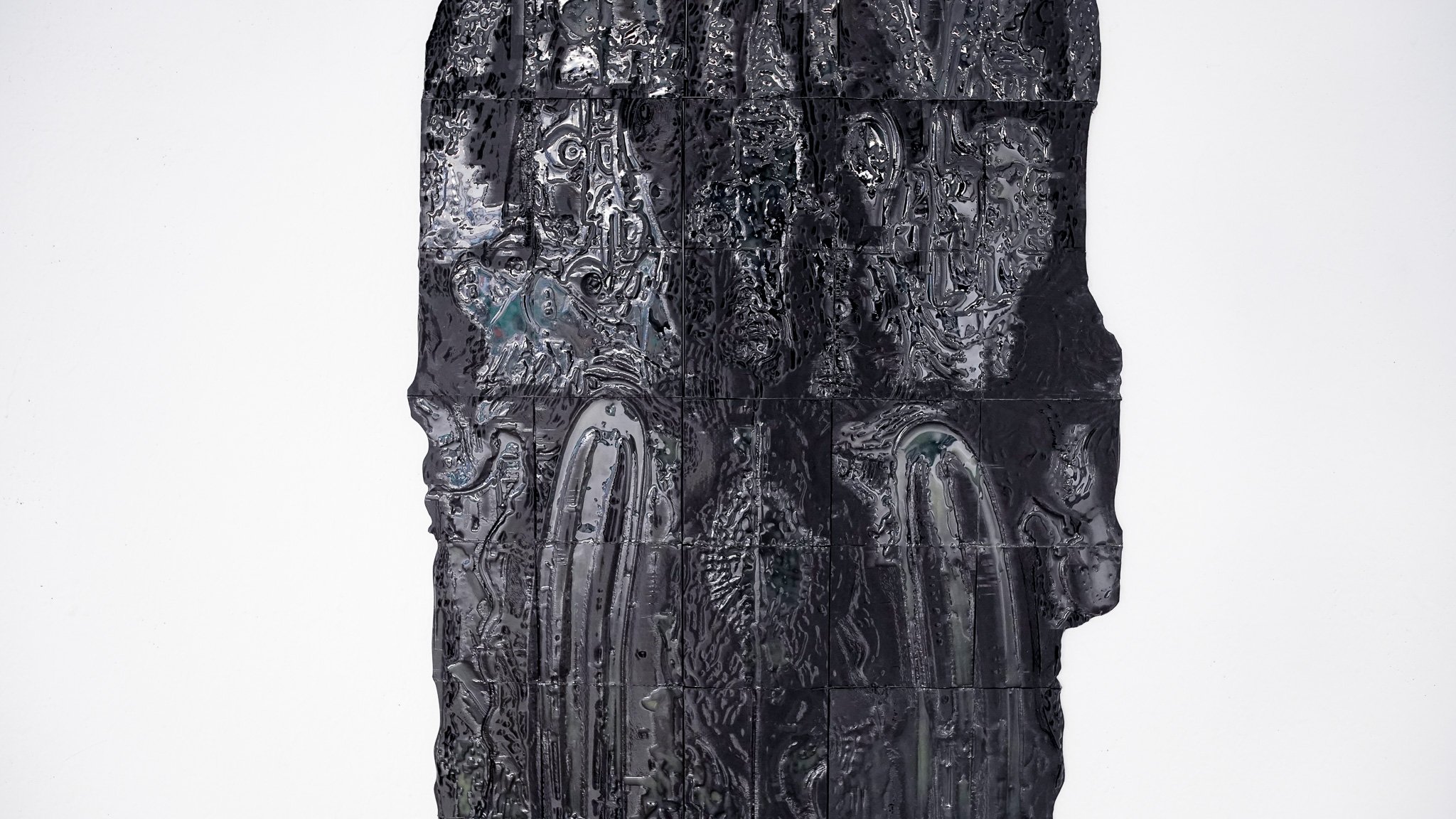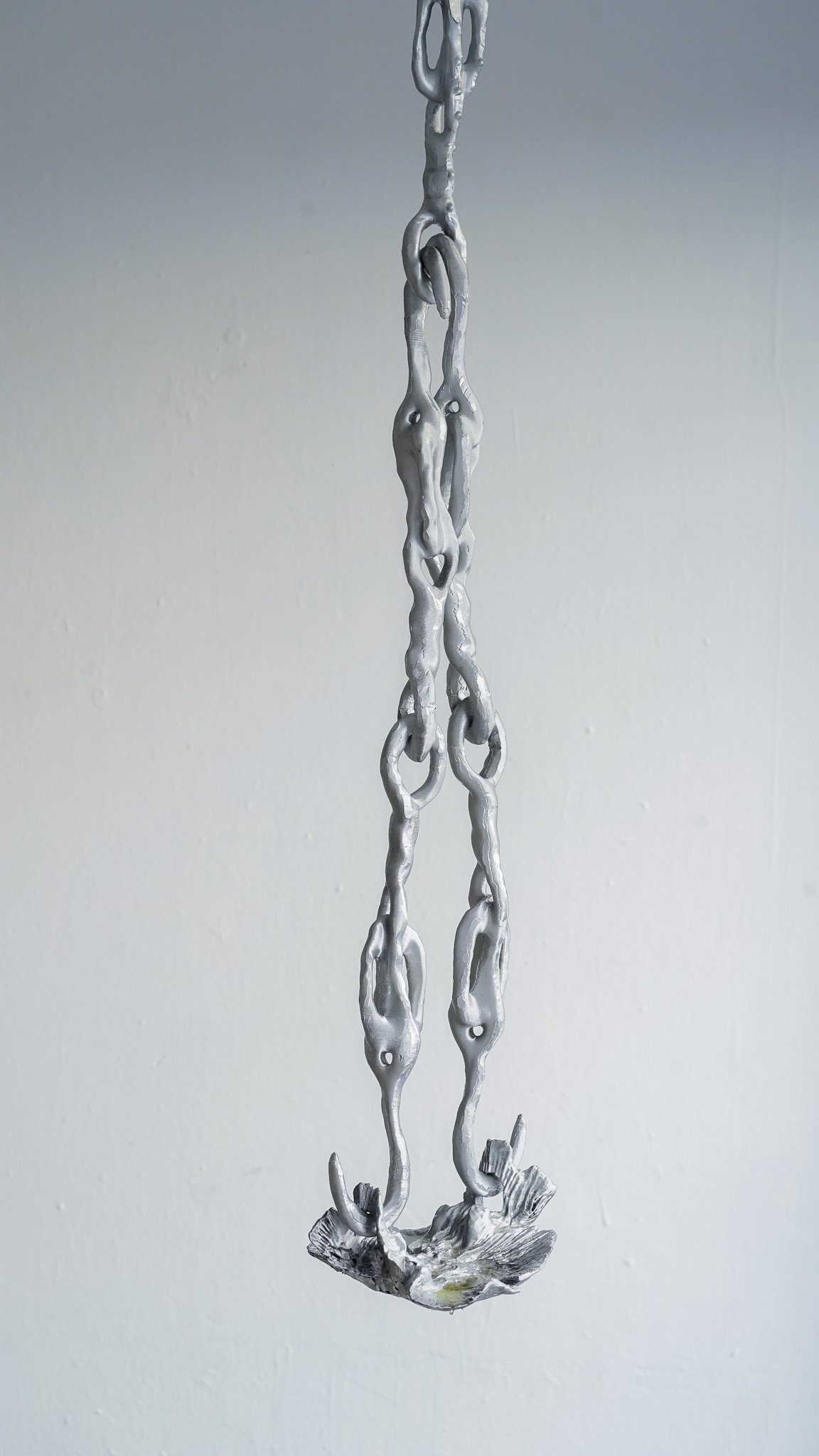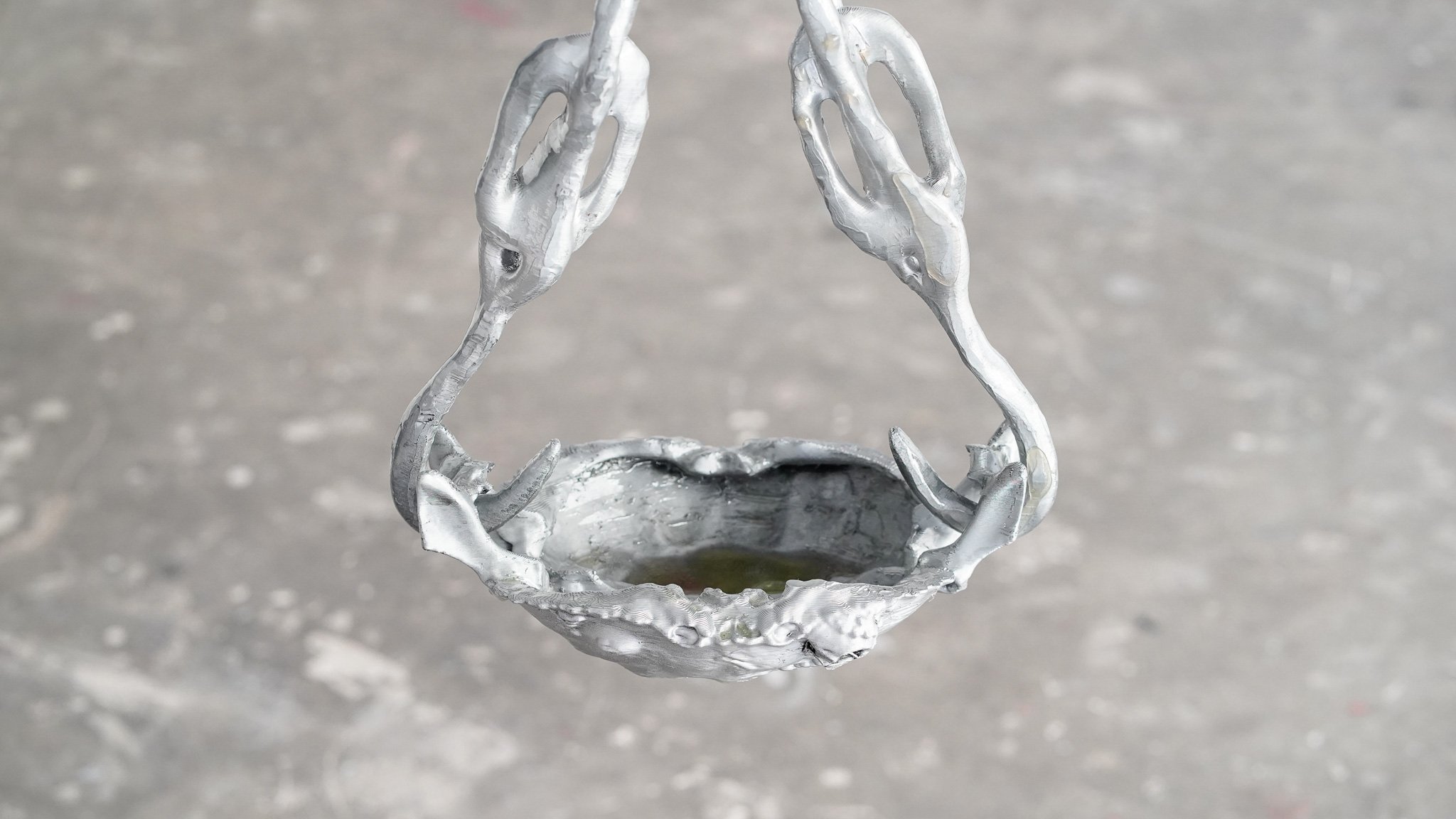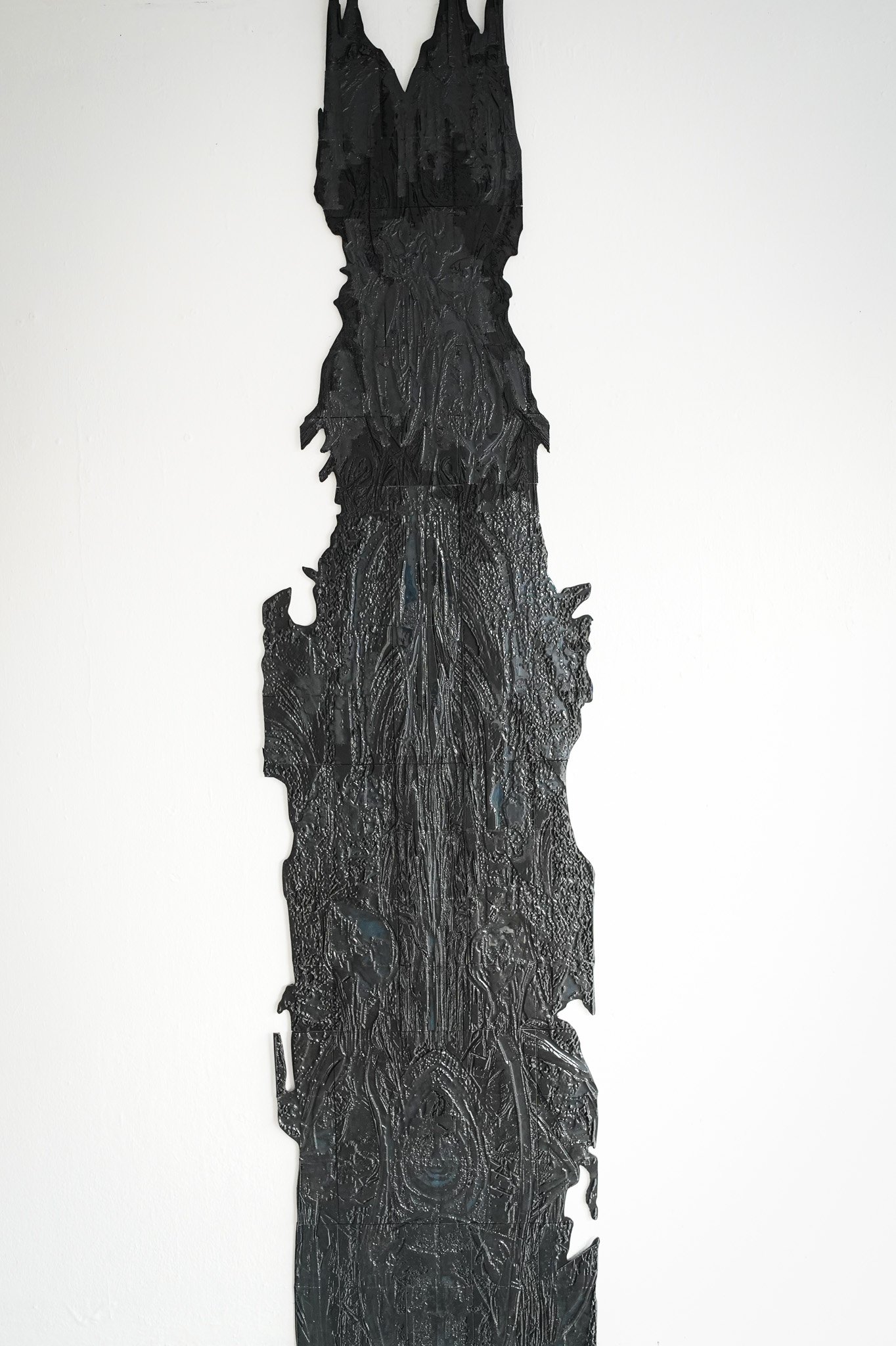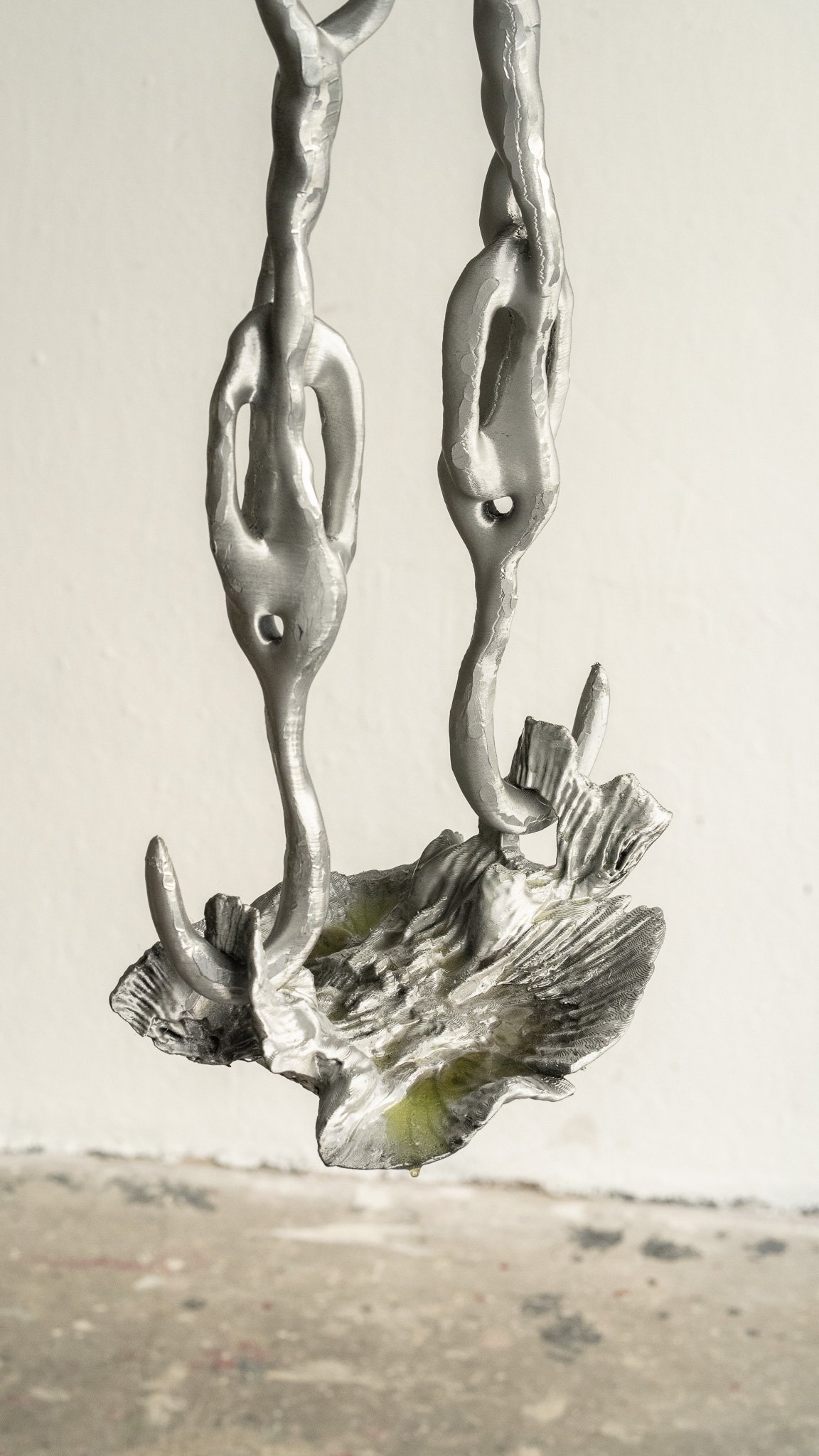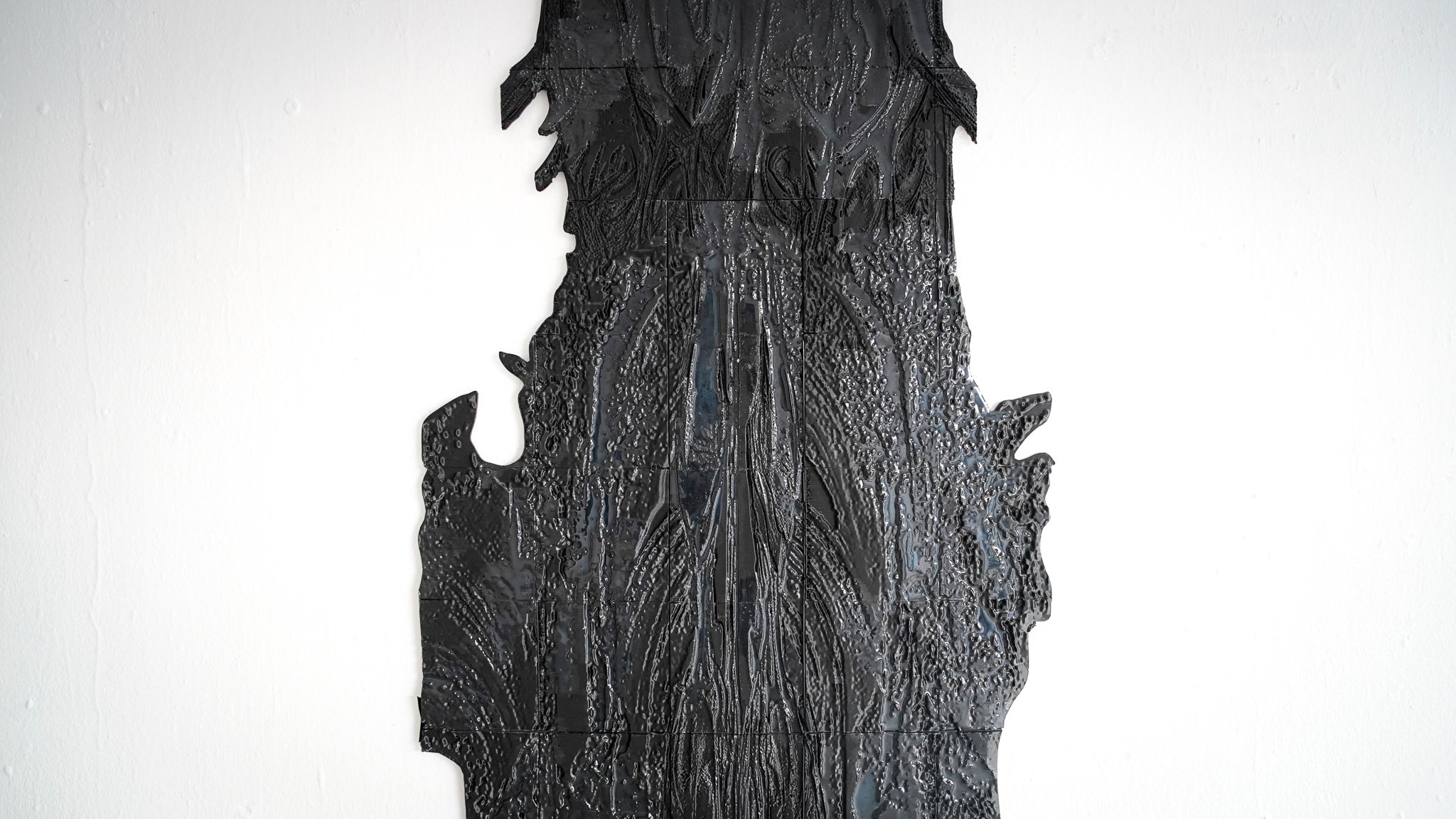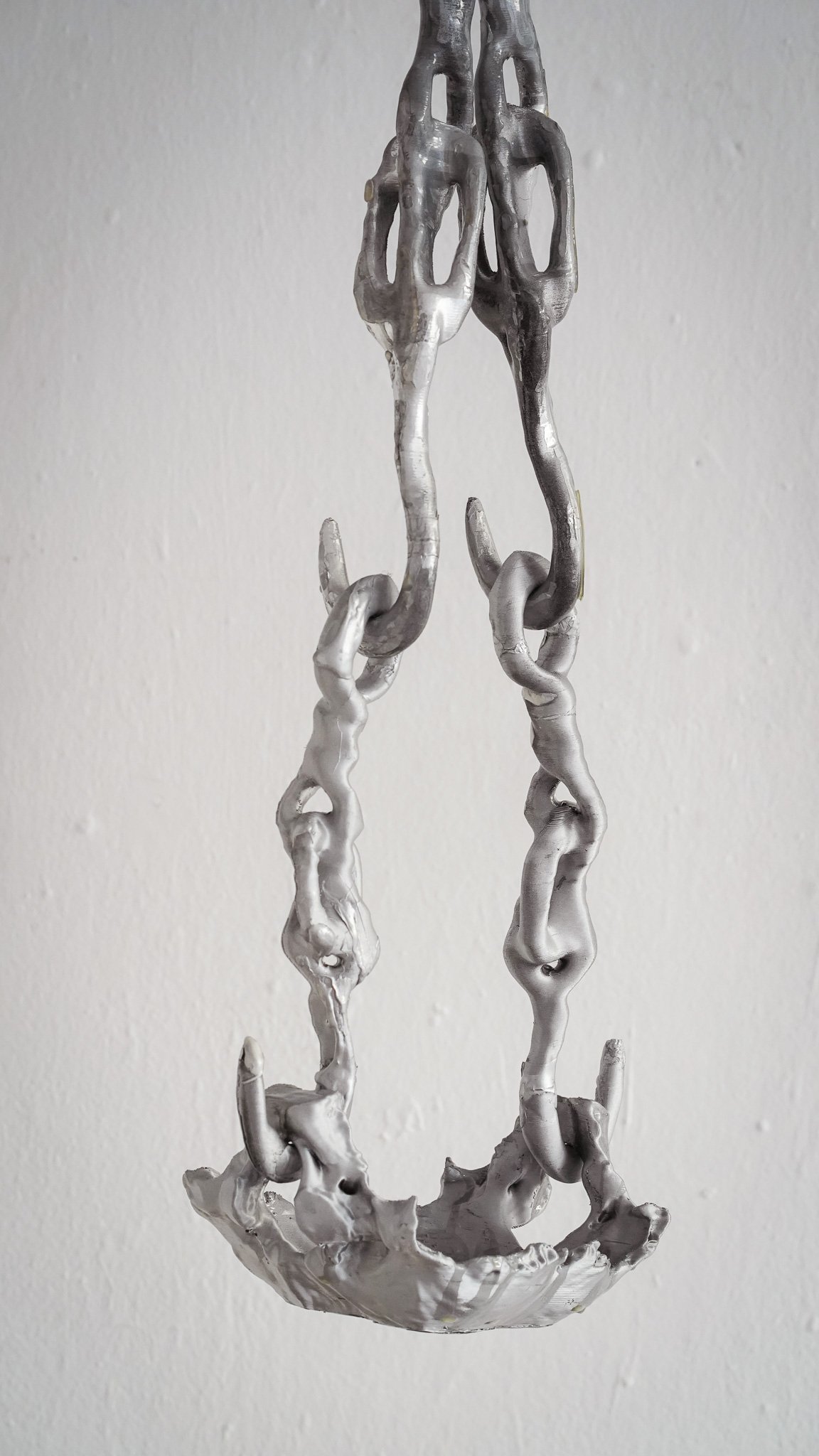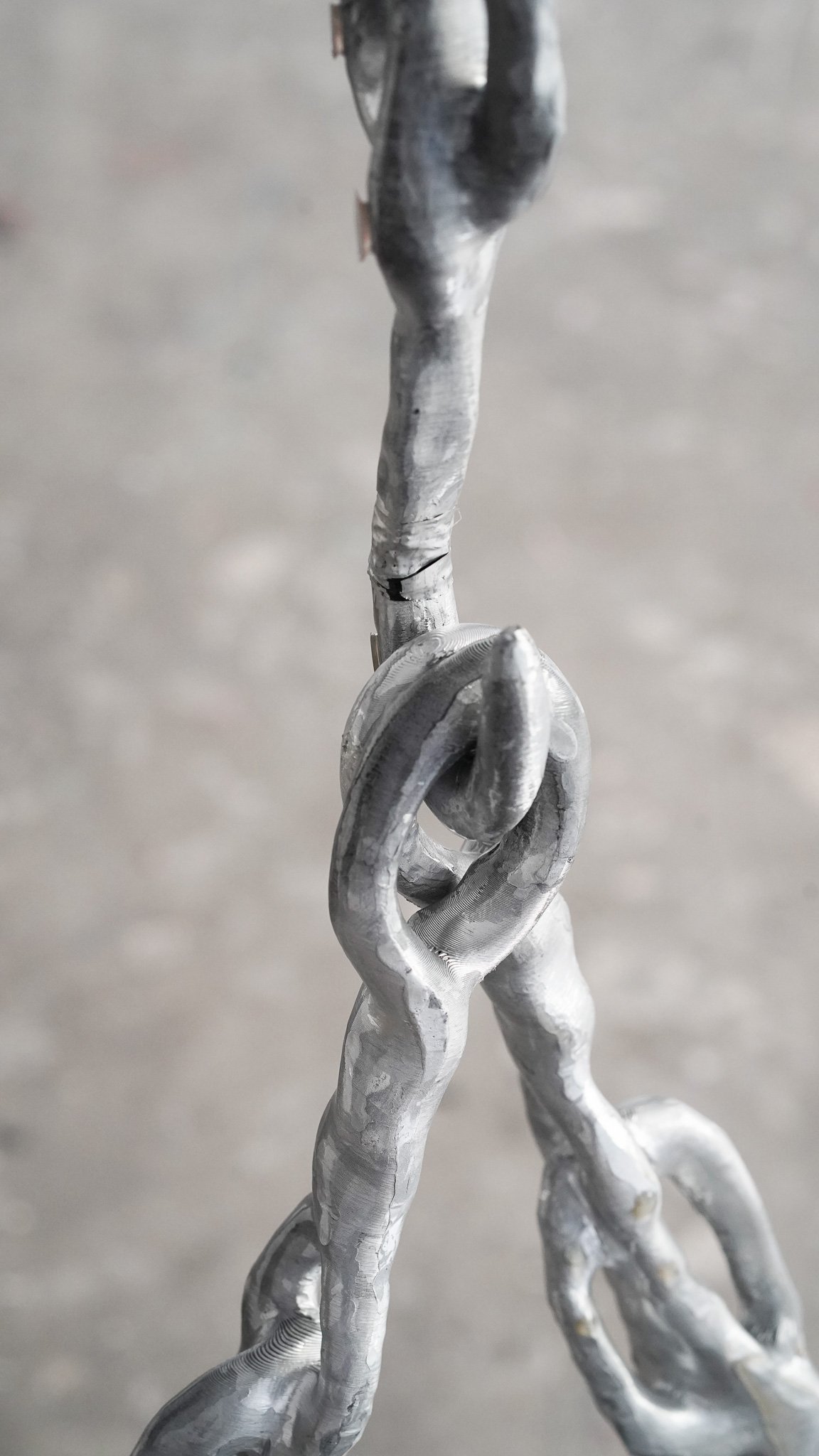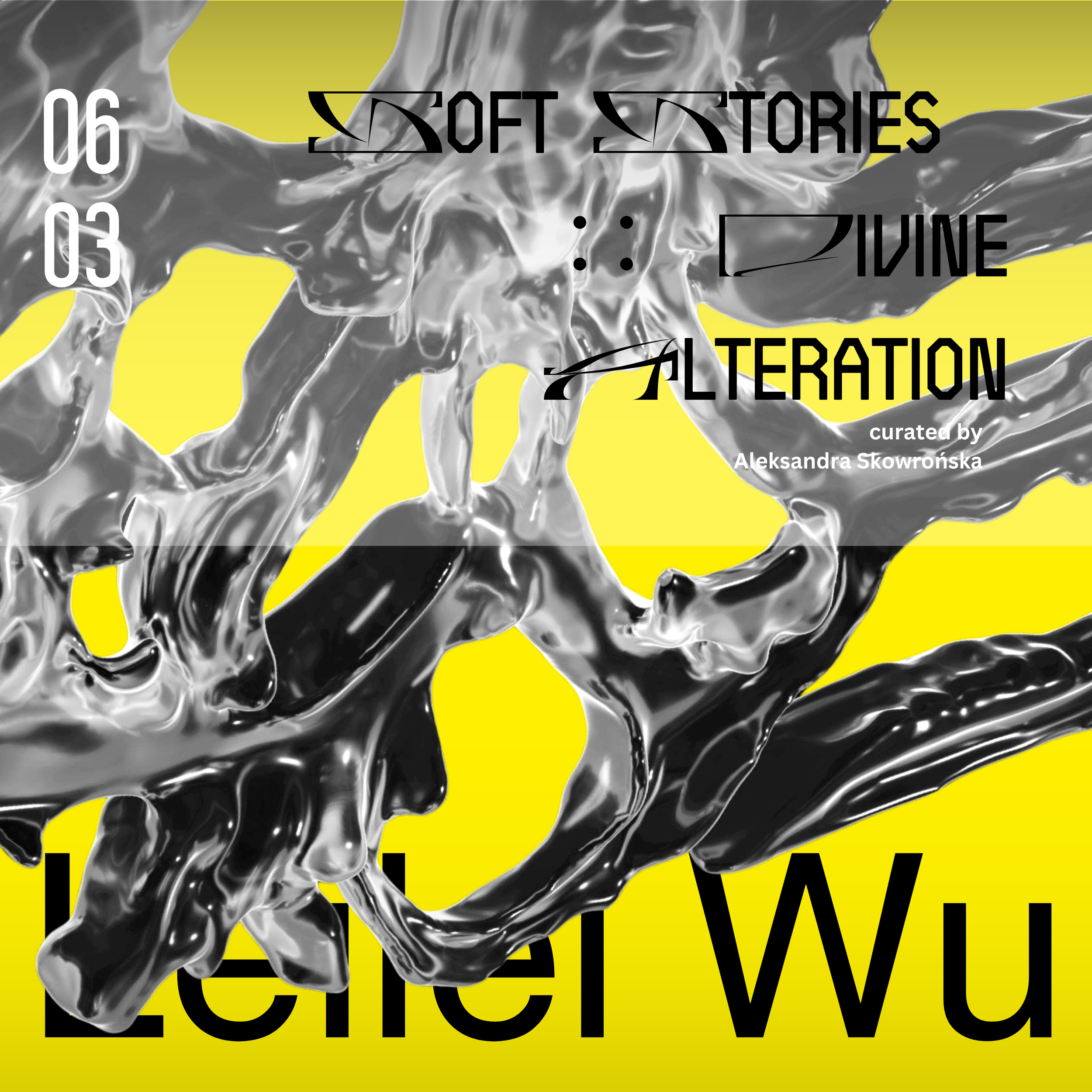Opening evening: March 6, 7 PM
Exhibition: March 7 - April 10
Artist: Leilei Wu
Curator: Aleksandra Skowronska
The exhibition soft stories ∷ divine alteration – the first solo show by Leilei Wu in Austria – explores the relationships between faith, technological imaginings, and the tragedy of eternal objectification.
The starting point for the project was the observation that contemporary technologies become more and more socially fetishized. Furthermore, even agency and autonomy are attributed to them. Technology – especially advanced language models based on machine learning, commonly referred to as 'artificial intelligence' – cease to be seen as tools and begin to exist as separate entities independent of human will. The tendency to place hope in technology, but also to fear its agency, resembles the way divine beings are treated in various belief systems. The popularization of so-called AI is a breakthrough in the described trend, as its actions are not fully understood, yet it becomes an increasingly present element in everyday life and social imagination.
The above observations seem to provide evidence that contemporary advanced, complex, and beyond the understanding of their audience and users technologies gain a new status, dangerously close to the status of divine beings. Such observations can also be found in contemporary humanistic discourse: for example, Benjamin Noys describes it as "the mysticism [of the object] treated as possessing divine powers [...] [resulting] in the inflation of the technological object into something that both terrifies and fascinates, displacing it from history into the realm of the natural or metaphysical..." Meanwhile, Andre Vaccari points out the intensifying deomorphic role of technology, increasingly visible in everyday discourse, where technology is routinely depicted as a significant subject with omnipotent capabilities.
Since technology assumes agency and wields power, at least symbolically and imaginatively, what is the role of humans and societies in such a configuration?
The exhibition soft stories ∷ divine alteration endeavors to initiate a conversation about the aforementioned observations, presenting the immersive tale of self-replicating myths of autonomy: power, spirituality, and technology. It is a story of gentle narratives, deceptive metaphors, and sweet coercion. It is the chronicle of the present, where the more things change, the more they stay the same.
Public Program
March 7, 7 PM Artist talk by Leilei Wu
March 20, 7 PM Expert talk with Patricia Reed (online)
April 4, 7 PM Expert talk with Paul Feigelfeld and Clemens Apprich
April 10, 7 PM Curatorial tour soft stories ∷ divine alteration by Aleksandra Skowrońska
Leilei Wu is an artist and researcher whose work disrupts material, social, computational, and metaphysical realities. Drawing her main inspiration from synthetic materials and nature, Wu questions the new technologies employed in production, reproduction, and distribution. In her work, she emphasizes the relationship between technology, history, and art.
Born in Ningbo, a major sub-provincial city in northeast Zhejiang province, Leilei Wu developed her sculpting approach to 3D printing while studying at the Jingdezhen Ceramic Institute (JCI). As ceramic modeling proved difficult for her, she started looking for a different medium. For something, where she could express herself freely. When Leilei Wu moved to Milan to study Sculpture at the University of Brera in Italy, her passion for digital sculpting was nurtured even further.
Through provocation, collaboration, and ‘weird’ or science-fictional thinking, she creates 3D-printed objects and develops installations, experimental images, web art, and AI research. Her sculptures combine robotic and organic elements. With the use of algorithms, she creates organic shapes for her ‘creatures’ that blend a hyper-digital aesthetic with the real world.
By exploring the intersection of art and technology, Leilei Wu blurs the boundaries between creation and synthesis. Therefore, with her sculptures, she delves into a significant conversation between the imaginary and the technology-driven world. And further, through her work, she invites us to consider the implications of technology on our lives and to reflect on its potential use in the future.
Aleksandra Skowronska - PhD student at the Department of Theater and Media Arts (Adam Mickiewicz University in Poznan), member of the Humanities Art Technology Research Center (Adam Mickiewicz University in Poznan). Chief curator of Short Waves Festival 2023, head of research and international projects at the Pawilon (performance space of Arsenal City Gallery). She works as a curator, researcher and publicist.
_
Supported by MA7, BMKOES, Culture Moves Europe
_
Video and photos © Miloš Vučićević
Photos by Miloš Vučićević

